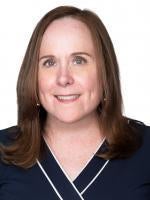November 9, 2021. As part of the Department of Justice’s Sober Homes Initiative, two brothers who owned and operated two South Florida addiction treatment facilities were convicted by a federal jury in Miami for “fraudulently billing approximately $112 million for services that were never provided or were medically unnecessary.” Convictions included conspiracy to commit health care fraud and wire fraud, conspiracy to pay and receive kickbacks, and paying and receiving kickbacks. One of the defendants was convicted for a variety of financial wrongdoing, including money laundering and bank fraud related to PPP loans for both treatment facilities. The addiction treatment facilities functioned in tandem to maximize profits—at the expense of patients, taxpayers, and insurers—and not to treat patients seeking treatment for drug addiction.
Second Chance Detox LLC, dba Compass Detox (Compass Detox) was an inpatient detox and residential facility, and WAR Network LLC (WAR) was an outpatient treatment program. According to the evidence presented at trial, patient recruiters or “body brokers” enticed patients with illegal kickbacks such as illegal drugs, free plane tickets, and cash. Patient recruiters provided illegal drugs to patients, which then made the patients eligible for detox treatment. Once these patients were admitted to Compass Detox for the most expensive treatment program, the facility billed insurance programs for treatment services that were either not provided or not medically necessary, including therapy and urinalysis drug tests. Between a “Comfort Drink” to sedate patients and further access to illegal drugs, the detox facility sacrificed patients’ recovery for the facility operators’ material gain. Cycling patients between the inpatient and outpatient facilities allowed the operators to maximize claims for a core group of patients.
“Patient brokering” has been on the Department of Justice’s radar for some time. In 2020, as part of the National Health Care Fraud and Opioid Takedown, the DOJ announced $875 million in fraudulent claims were from “sober homes” schemes such as this recent South Florida case.
In 2017, state attorney Dave Aronberg from Florida’s 15th Judicial District testified in a hearing before the Subcommittee on Oversight and Investigations of the Committee on Energy and Commerce of the House of Representatives, and described this type of addiction facility scheme as “the Florida shuffle.”
Employees of treatment facilities or labs associated with treatment facilities could report unscrupulous actors taking advantage of both people struggling with addiction and government-funded healthcare programs. Whistleblowers who report government fraud are entitled to receive 15-25% of the government’s recovery.





 />i
/>i

